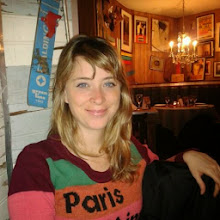
I believe the main aim of the book is very important when teaching youngsters. The book doesn’t attempt to give a long list of moral answers to everyday problems but to stimulate young learners to develop critical thinking; not to take everything that comes from the outside world for granted and to help them to take positions and build up their identity. This can be related to what we were discussing on previous lessons as regards thinking differently. If we always do and believe what we are told to; or never ask ourselves why should I think this or that or behave this way? Is this what I really believe?, we will never be free, we will be like entities that can be easily controlled.
I particularly like the way the book is written and the role the writer takes as a father talking to his son, who wants to transmit all what he has learnt, reflect and experience throughout his life advising him to trust himself and at the same time, learn from his son too, so that enrich each other’s lives.
I particularly like the way the book is written and the role the writer takes as a father talking to his son, who wants to transmit all what he has learnt, reflect and experience throughout his life advising him to trust himself and at the same time, learn from his son too, so that enrich each other’s lives.



